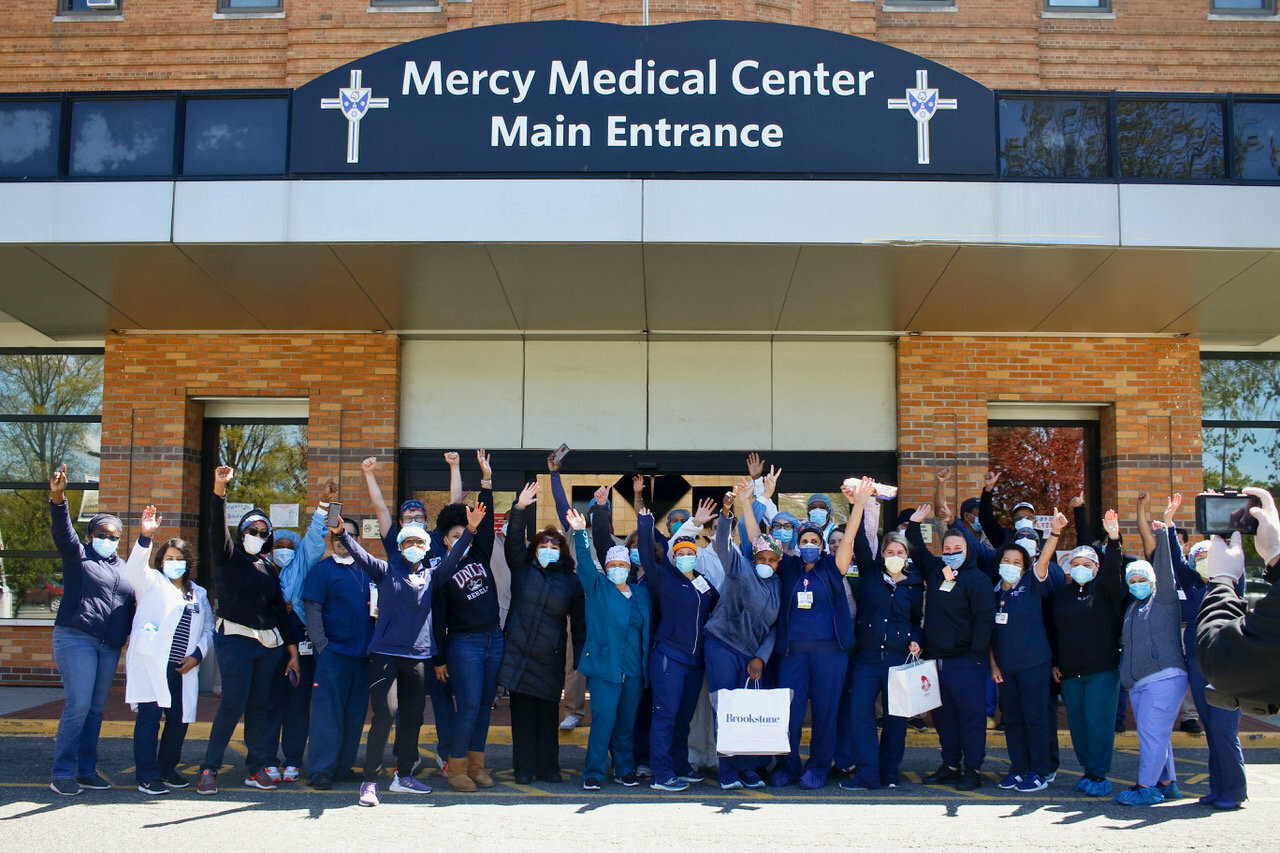Mercy Hospital reflects on pandemic
It has been over three years since the coronavirus outbreak in 2020, and life on Long Island, and all over the world, will never be the same. While new variants of the disease still pose a threat, treatment is now more available than ever thanks to enhanced government efforts, although lingering questions remain on what long-term effects this virus will have — especially for those who continue to suffer from long-Covid.
On May 11, the federal declaration of a public health emergency was lifted.
In March 2020, the first confirmed case of coronavirus in Nassau County was a 42-year-old part-time employee at Catholic Health’s Mercy Medical Center in Rockville Centre. Officials said that they were uncertain how the man contracted the illness, and that he had not been to work at the hospital for a week. Infection-prevention specialists investigated whom he may have been in contact with, in accordance with guidelines from the Centers for Disease Control and Prevention.
As the number of cases climbed rapidly, health care professionals stepped up to try to treat more patients, while taking the necessary precautions to prevent the virus from spreading within their facilities.
“From the initial cases, and fear and real-time constant changes in understanding the Covid pandemic, we learned the resiliency of our providers at the bedside and our hospital system,” Dr. Robert Bramante, chair of Mercy Hospital’s Emergency Department, wrote in an email. “We learned that our frontline personnel not only could adapt, but were willing to put themselves, and potentially their families, at risk to serve the people in our community.”
To help make room for the influx of patients, Mercy and other Catholic Health hospitals canceled all hospital-based elective surgeries for an entire month. They suspended all visitation, making exceptions only on a case-by-case basis for childbirth and hospice care.
“Things that could be done on an elective basis are going to be delayed or canceled to free up capacity,” Dr. Patrick O’Shaughnessy, Catholic Health Services’ president and chief executive officer, said on “CBS This Morning” in 2020. “Managing the Covid-19 crisis will be more of a marathon and not a sprint.”
New policies were a critical part of maintaining patient safety as the pandemic spread. Mercy and CHS officials regularly updated information on Covid symptoms, social distancing, and efforts to reduce exposure. Thanks to virtual meetings, people were able share information while remaining safe and separated.
Before long, researchers with Pfizer-BioNTech, Moderna and Johnson & Johnson began working on vaccines and ensuring their availability to the public. Thanks to the vaccines, along with other prescription medications such as Paxlovid, people were far more likely to successfully prevent serious illness, hospitalization and death due to Covid.
Now, over than three years later, medical professionals at Mercy and other facilities across the country reflect on the pandemic as a learning experience and a planning tool for unexpected.
“It’s my belief this collective experience for our health care system has made us more prepared should we ever have to face another pandemic,” Bramante said, “and I hope that, we as a population and country, have learned lessons in communication to continue to protect and treat the community.”
According to Catholic Health Services, its knowledge of the pandemic and the superior technology and processes instituted by its facilities have made them highly effective at treating the coronavirus.
“If there’s one thing we’ve learned throughout the coronavirus pandemic, it’s that we’re all in this together,” the organization’s website states. “The award-wining doctors and nurses of Catholic Health have developed a keen understanding of best treatment strategies and safety protocols.”

 45.0°,
Partly Cloudy
45.0°,
Partly Cloudy 




